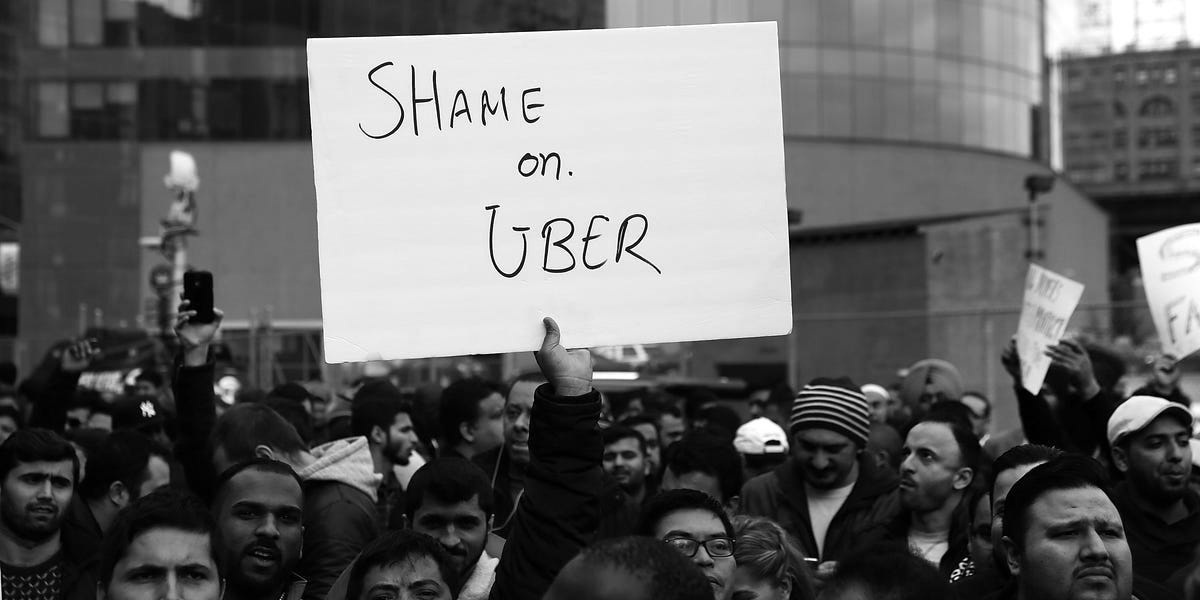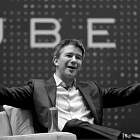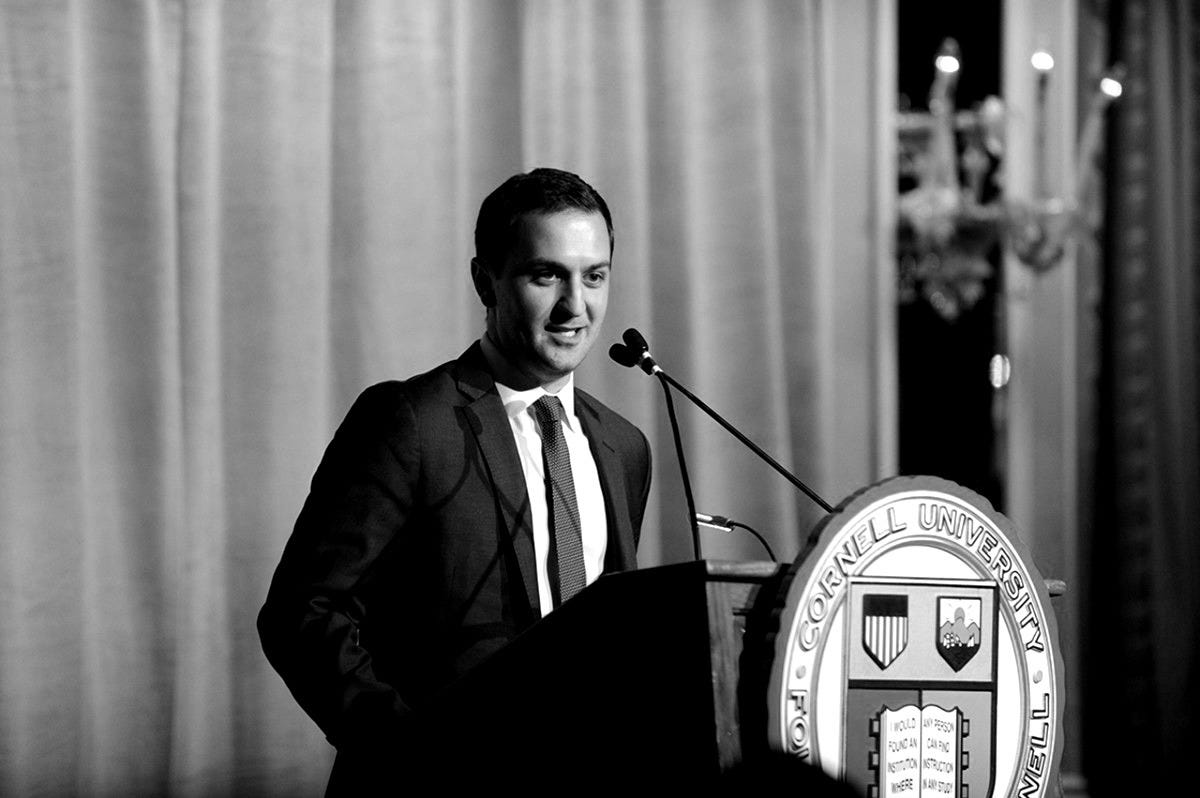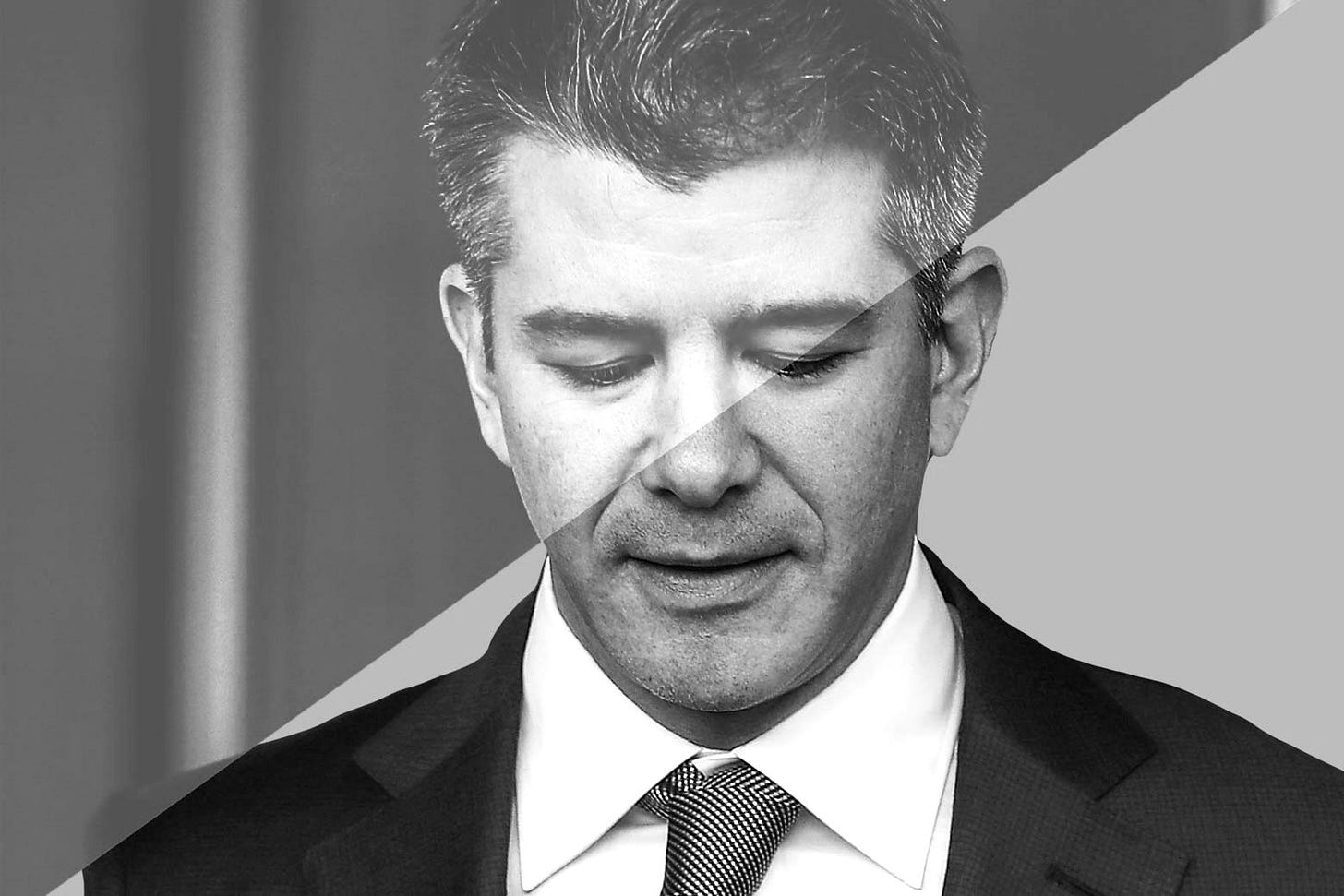Ubiquitous II
beware what lies underneath the surface...
Previously:
Bill Gurley, partner at Benchmark, knows a good deal when he sees one.
He was in love with marketplaces—platforms that don’t make, buy, or sell anything, but rather match buyers and sellers and take a cut.
Before coming across Uber, he’d invested in successful marketplaces like Zillow and OpenTable. His fund, Benchmark, is famous for turning its $6.7M eBay investment into $5B.
Gurley was not your average VC partner; he was a 6’9” former Division I basketball player at Florida who led the Gators to a national championship, averaging 25 points per game, 9 rebounds per game, and 2 blocks per game, winning National Player of the Year.
Nah, I’m just kidding.
He was a walk-on who only played a minute in his career but was eventually able to earn a scholarship.
After completing his MBA at Texas, Gurley made his way to Credit Suisse as a sell-side analyst covering tech stocks. Soon after, he switched to Deutsche Bank, where he notably helped underwrite Amazon’s IPO.
Amazon was the new IPO darling and could’ve chosen a blue chip name like Morgan Stanley or Goldman Sachs. Instead, Bezos & Co went with Deutsche Bank due to the impression Gurley and his partner Frank Quattrone left on him.
Gurley quickly became one of the most respected analysts on the street.
But he didn’t want to be an analyst for the rest of his life.
He wanted to be an investor.
After just 18 months at investment firm Hummer Winblad, he landed a partner role at Benchmark.
He had experience investing in a handful of successful marketplaces, so it didn’t take him long to realize Uber was special.
Fortunately for Gurley, the infatuation was was a two-way street.
Kalanick needed someone like Gurley on his board; someone who not only had a good investing track record but also a deep understanding of how marketplaces operate.
After some deliberation, Benchmark was officially named the lead of Uber’s $50M Series A round.
After replenishing their war chest, Uber embarked on a quest for worldwide expansion.
They continued to dominate markets like San Francisco, Los Angeles, Washington DC, Chicago and New York City, and they eventually established presences in Sydney, Paris, Melbourne, Milan and other international cities.
Things were operating smoothly until two founders named John Zimmer and Logan Green launched their service called Zimride—a peer-to-peer transportation platform where anyone could be a driver.
The platform would eventually change its name to Lyft.
After catching wind of their new competitor, the Uber team tried to take them down the easy way: feeding them to the wolves.
AKA the transportation regulators.
Strangely enough, that didn’t really work.
That left Kalanick with one option: brutally destroy Lyft by launching UberX, the product we now associate with Uber.
In addition to launching products, he waged all-out psychological warfare against Zimmer.
@johnzimmer you’ve got a lot of catching up to do #clone
Travis Kalanick on X (Twitter) March 2013
Travis made sure investors knew they could not eat their cake and have it; if they invested in Lyft, they would have to walk away from Uber.
He would also send employees to crash the notorious Lyft driver parties to let them know they worked for an inferior company.
Kalanick was petty—and quite frankly, didn’t care.
For what it’s worth, the pettiness seemed to be working.
Every investor wanted to invest in Uber.
Normally, companies work tirelessly pitching venture capitalists for funding.
With Uber, however, the roles reversed. Kalanick was the one fielding the pitches from venture funds as to why they should be allowed to invest in Uber.
Everyone wanted a piece of the pie. Even Google.
Google Ventures typically wrote early stage checks and up to this point had never deployed more than a low eight figure check into a company.
Kalanick didn’t care that this was how they operated.
He came forth with his demand: a $250 million investment at a $3.5B valuation.
David Crane, partner at Google Ventures, couldn’t believe his ears.
There was simply no way he was going to ever deploy this much capital into one company.
But he did.
After the amount was settled, Crane was expected to be rewarded a board seat. There was only one problem; Kalanick didn’t want him.
He wanted David Drummond, one of the original members of Google who had been working with Larry Page and Sergey Brin from the very beginning.
Kalanick also had one last demand: a personal meeting with his idol, Larry Page.
Like his other requests, it was immediately granted.
With his latest funding round, Kalanick was one of the most powerful people in Silicon Valley.
On the surface, Uber seemed be an innocent startup with a unique hustle culture that simply wanted to provide a transportation marketplace that was desperately needed.
But below the surface, things were much darker.
Firstly, to say that Uber’s ascent had a negative impact on the taxi system would be a massive understatement.
For context, between the year of 2011 and 2017, taxi medallions–the scarce permits required to drive–decreased from about $1 million to $186,000 due to the waning demand.
Overnight, taxi drivers’s entire livelihoods that were tied up in and paying off the medallions went underwater.
This medallion system was the major reason why taxi drivers didn’t simply leave their jobs and become Uber drivers.
The medallion supply was capped by the city to control congestion, meaning supply was always fixed and demand drove price movements.
Before Uber, taking on a significant debt load to buy the commodity made sense, as most agreed in the long run a medallion was an appreciating asset, as there was no real reason why demand would decrease.
But when the rideshare apps entered the market, their entire customer base seemingly disappeared, and the drivers were left with crippling debt.
A New York City taxi driver named Douglas Schifter describes the negative impacts of Uber on his life:
“When the industry started in 1981, I averaged 40 to 50 hours. I cannot survive any longer with working 120 hours. I am not a slave. I refuse to be one.”
Soon after, Schifter unfortunately took his own life.
Also, in some instances where the taxi cartels had ties to organized crime—like Las Vegas—Uber drivers would often be assaulted or have their car set on fire.
Uber’s culture was beginning to be a talking point within the media space not only within the tech world but mainstream media as well.
What initially started out as admiration for Uber’s ability to “hustle” and grind,” soon turned into criticism for the excessive “bro” culture that seemed to dominate the startup space.
Kalanick and the rest of the crew dismissed it, articulating that outsiders simply didn’t understand what it took to win in Silicon Valley.
“Winning has a price. And leadership has a price. So I pulled people along when they didn’t want to be pulled. I challenged people when they didn’t want to be challenged. Once you join the team, you live at a certain standard that I play the game. And I wasn’t gonna take anything less.”
Travis KalanickMichael Jordan
Unfortunately, the noise only got louder, due to more substantiated accusations against Uber.
There were always whispers of sexual misconduct at Uber that were able to be swept under the rug, but it blew up in their face when a female engineer’s blog about her negative experience went viral.
She gave detailed descriptions of inappropriate behaviors at Uber and emphasized that the company’s HR team didn’t take any of her complaints seriously.
This was the genesis of Kalanick’s PR nosedive.
He was starting to become widely disliked.
Because the press didn’t like him, this had an obvious negative impact on the way everyday people began to perceive him.
What didn’t help was that he was caught on video berating an Uber driver that complained to him about the revenue he lost out on due to decreased fares.
“Some people don’t like to take responsibility for their own ( ) … they blame everything in their life on somebody else. Good luck.”
Kalanick
To cap it all off, the press had somehow discovered Uber’s clandestine Operation Greyball. That’s the funny thing about secrets. They always come to light. There is nothing concealed that will not be disclosed, or hidden that will not be made known… The Light shines in darkness.
Remember when Portland’s transportation department head Steve Novick told Uber to get the “company out of my ( ) city”?
When Uber didn’t leave, Novick deployed local officials to spend their entire day hailing Ubers and threatening the drivers with excessive fines and even jail time.
If they could scare enough Uber drivers off, the supply side would be unable to match demand and Uber would have no choice but to exit the city’s market.
At first, it seemed to be working.
But a problem quickly arose - when officials tried to order Ubers, something weird began to happen.
The app would seem functional but would strangely be unable to catch rides, even after trying for hours.
The reason for this was Uber secretly hired former CIA and NSA agents to spy on local authorities and gather enough intel on them.
After the information was gathered, it was passed onto the engineers who implemented lines of code that prevented the officials from catching rides although the app seemed fully functional.
To Kalanick, this was just part of the battle against the corrupt taxi system, lobbyists, and donors that wanted to see Uber fail.
To everyone else, it was a severe violation of people’s privacy.
All of this negative press began to weigh on Uber’s institutional investors, especially Gurley.
Benchmark’s Series A investment had multiplied handsomely over the years. After the turmoil, however, he was concerned that Uber was on a downward trajectory. The problem wasn’t their product—no one could deny the value and convenience of an UberX.
But Uber always seemed to be caught up in some external mess, and Gurley was a seasoned veteran and he had seen companies fail due to similar reasons.
He felt like he had a duty to his LPs to ensure that Uber stayed on the right track.
He needed to take things into his own hands.
Kalanick had maintained a distrust for VCs ever since the Ovitz situation described in Ubiquitous I.
It’s almost like he knew his fate before it transpired.
Let the battle for Uber commence.





